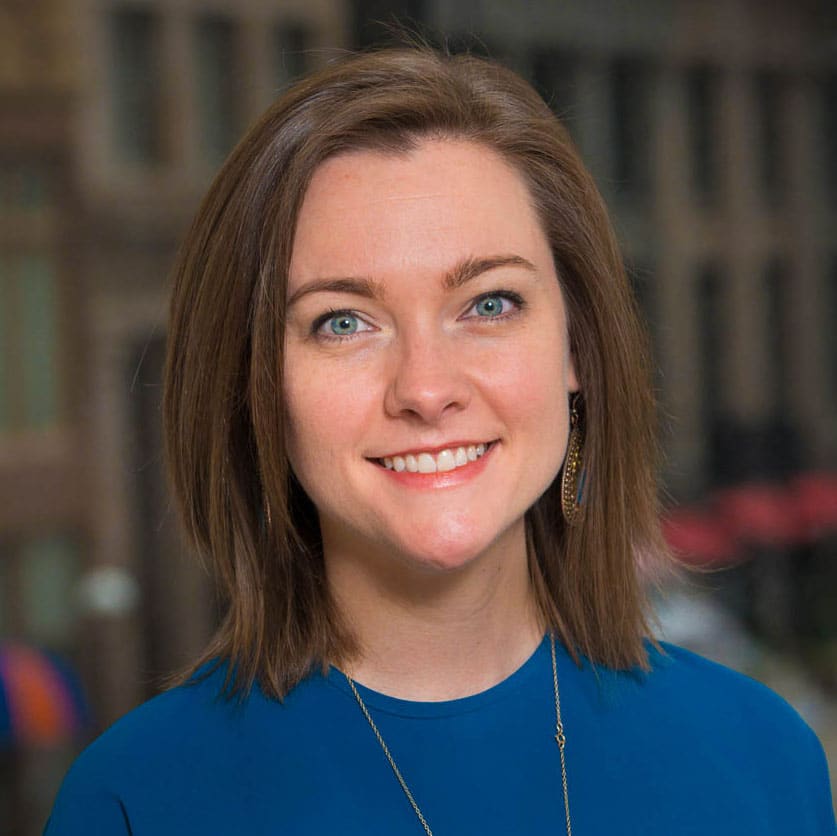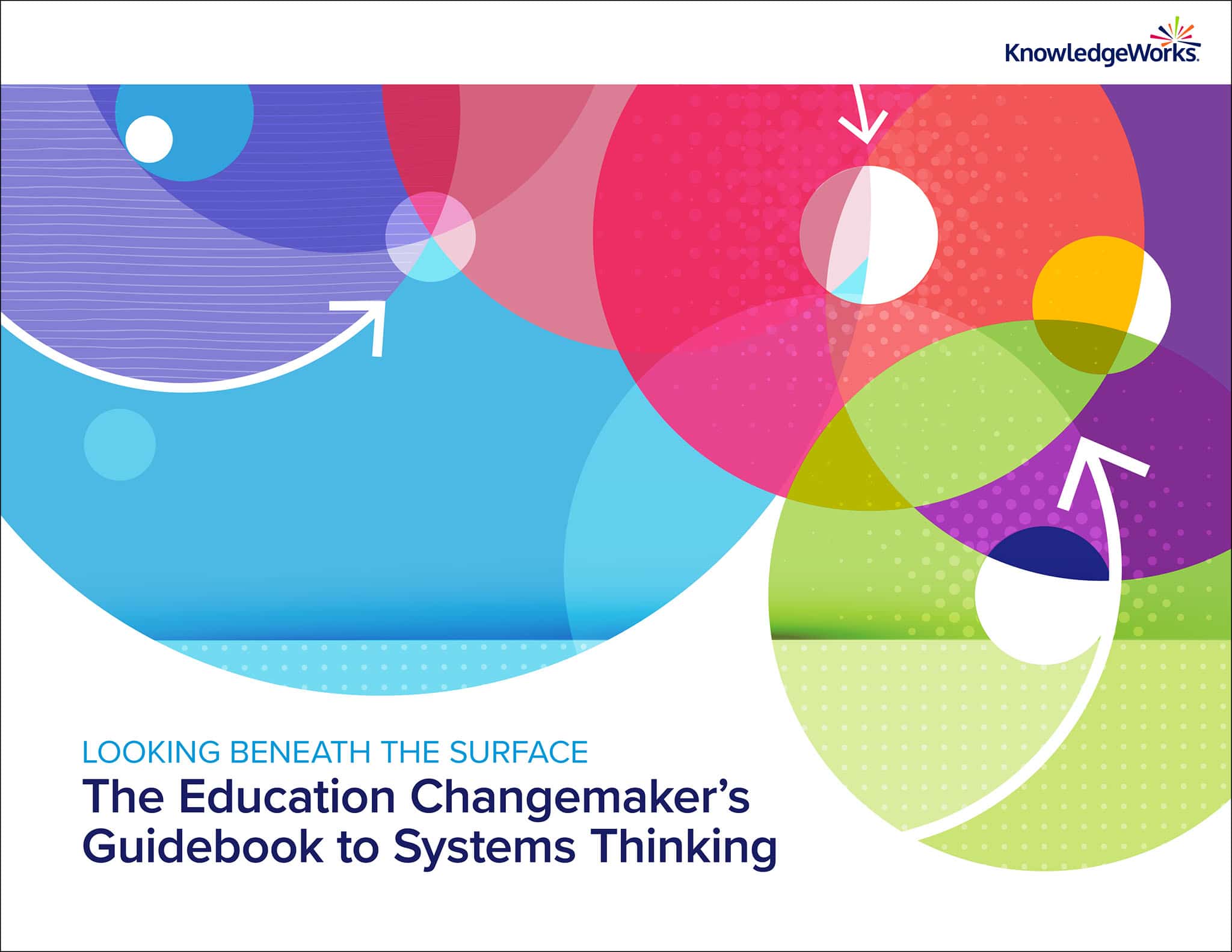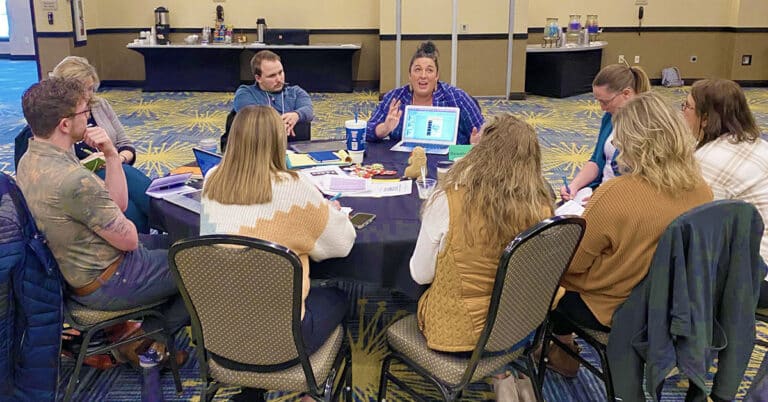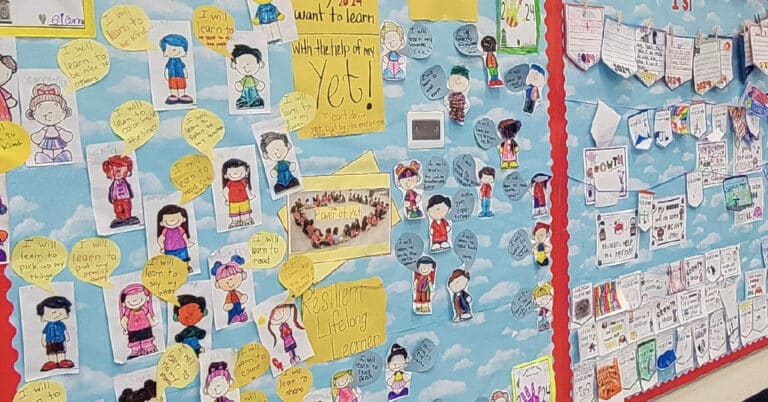My toddler daughter loves to paint. She goes wild with the brush, creating a colorful tangle of strokes. She also likes using stencils so she can paint a star or a dinosaur or a tree.
Our minds have stencils, too. They are called mental models. These are the beliefs that serve as filters for how each of us understands and acts in the world. Mental models are born from our experiences and also help us make sense of them. Like my daughter’s stencils, they give tangled reality a shape we can recognize.
Mental models are necessary. We would be perpetually overwhelmed without them, and they often reflect the learning and wisdom we have acquired over time. However, they can also cause us to become stuck in our thinking unless we notice, examine and sometimes challenge them. KnowledgeWorks’ recent systems thinking guidebook makes the case that we must transform our mental models in order to transform education systems.

There is something powerful about putting your mental models on paper and being able to discuss them with other people, to see their mental models and to pressure test them. It’s not about who’s right and who’s wrong but about what’s actually going on in the system. If I see it one way and you see it another way, how have our experiences and our mental models shaped what we think the system is? What can we do to address the system, even though we see it differently? I think that’s what makes it so powerful and engaging.
For example, the guidebook features the hypothetical systems thinking journey of a fictional group of educators, students, parents and community members who are working to address their school’s disproportionate suspension of Black students. After much discussion and applying the tools of systems thinking to understand the wide variety of experiences and beliefs related to the problem, the group members find themselves asking:
- What is the purpose of the behavioral expectations we hold for students?
- Why do we have this set of rules?
- Do those rules support or detract from a just and equitable school culture?
The group questions not only the procedures and features of their system, but also the foundational assumptions and beliefs that inform the ways their school operates. In so doing, they are trying out new stencils. The result could be a system that works in entirely new ways.
Once we recognize that we all have mental models and that they affect our beliefs, our actions and ultimately the ways our systems operate, we can no longer allow those mental models to remain hidden. Systems thinking offers tools for making mental models explicit, and simple conversation can also uncover the ways in which different people see reality. We must reflect on our own mental models, share them, seek to understand others’ and, where possible, align our collective mental models with the future we hope to see.
Extraordinary circumstances are rightly leading more and more people to scrutinize the social systems that determine how young people experience education. Now is the time to consider:
- How willing are we to allow those circumstances to shift our mental models?
- How willing are we to let go of our sense of certainty about how the world works and examine our opportunities, challenges and solutions through a new set of filters?
Our collective answer to those questions will determine whether our education systems can transform to be just, joyful and life-affirming or whether they will end up as a slightly different version of what they have always been.
This guidebook introduces the theories, language, mindsets and tools of systems thinking for the purpose of informing approaches to systems change.






